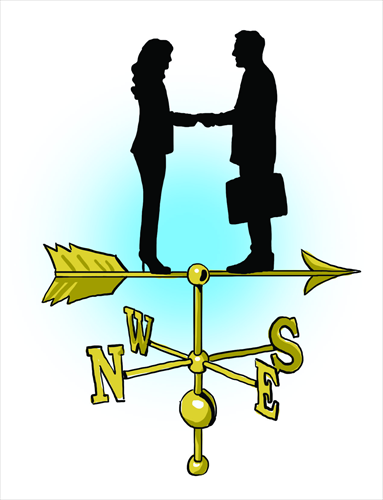HOME >> OP-ED
Chinese firms need business diplomacy
By Shaun Riordan, Jan Melissen and Paul Sharp Source:Global Times Published: 2013-11-20 20:28:01

Illustration: Liu Rui/GT
China's corporations are playing an increasingly important role in the global economy. They now feature among the largest and most internationalized companies in the world. But with their prominence and economic success come responsibilities and challenges that go beyond the commercial.
In many parts of the world it is China's large corporations that impact on the country's reputation, for good or bad. In others, their very presence inevitably draws them into political and other non-commercial disputes.
Major Western corporations have been here before. Ignoring the political component of their operations, they have made mistakes and paid the price, both politically and, crucially, economically.
For example, Western oil and mining companies, intent only on the extraction of energy and mineral resources, have ignored local communities and their political representatives, especially in Africa and Latin America.
This failure to take account of the political aspect of their operations has led to conflicts with local communities and, especially in Latin America, to the expropriation of their operations and the imprisonment of their executives.
Chinese corporations were originally seen in these countries as more acceptable alternatives to their Western counterparts. But now they too are encountering the same problems and conflicts.
"Business diplomacy" has been developed to help corporations identify and manage political and other non-commercial risks to their international operations. It seeks to make available to corporations the analytical and networking skills of government diplomats to create more favorable political environments for their operations at a global level.
Its core mantra is to identify the political and other non-commercial risks to a corporation's international operations, identify those stakeholders who can influence or control those risks and develop strategies for the cultivation of key stakeholders and thus the more effective management of the risks.
Business diplomacy must analyze and manage the political risks to a corporation's operations in all its international markets at the same time: Measures taken to manage risk in one country can adversely impact on a corporation's operations in another country, or its reputation at home.
The changing international political environment makes business diplomacy all the more important. As US hegemony declines and Europe turns inward, the global rule sets that have governed international political and commercial relations have begun to break down.
Emerging powers, including China, increasingly take advantage to assert their own rule sets and values. Major corporations confront a bewildering array of rules and norms that their own government may not be able to help them interpret.
Business diplomacy is the GPS of the 21st century: It helps corporations navigate this new and rapidly evolving international environment.
Political challenges to corporations occur not only in what the West used to call developing countries. Recently Chinese solar panel manufacturers got themselves in trouble by seeking to sell their products in Europe more cheaply than their European competitors.
Business diplomacy would have told them to cultivate the powerful environmental lobby. If they had convinced this lobby that they offered a cheap and effective way to reduce Europe's carbon emissions, they would have become untouchable by competitors. Instead they were forced to agree to limit their exports to Europe to avoid even tougher sanctions.
Chinese corporations urgently need to embrace business diplomacy and adopt its strategies, both to manage political risks to their international operations and to avoid avoidably, and unintentionally, damaging China's international reputation.
The authors are senior research fellows at the Netherlands Institute of International Relations in The Hague. Melissen and Sharp are founding co-editors of The Hague Journal of Diplomacy. opinion@globaltimes.com.cn
Posted in: Viewpoint